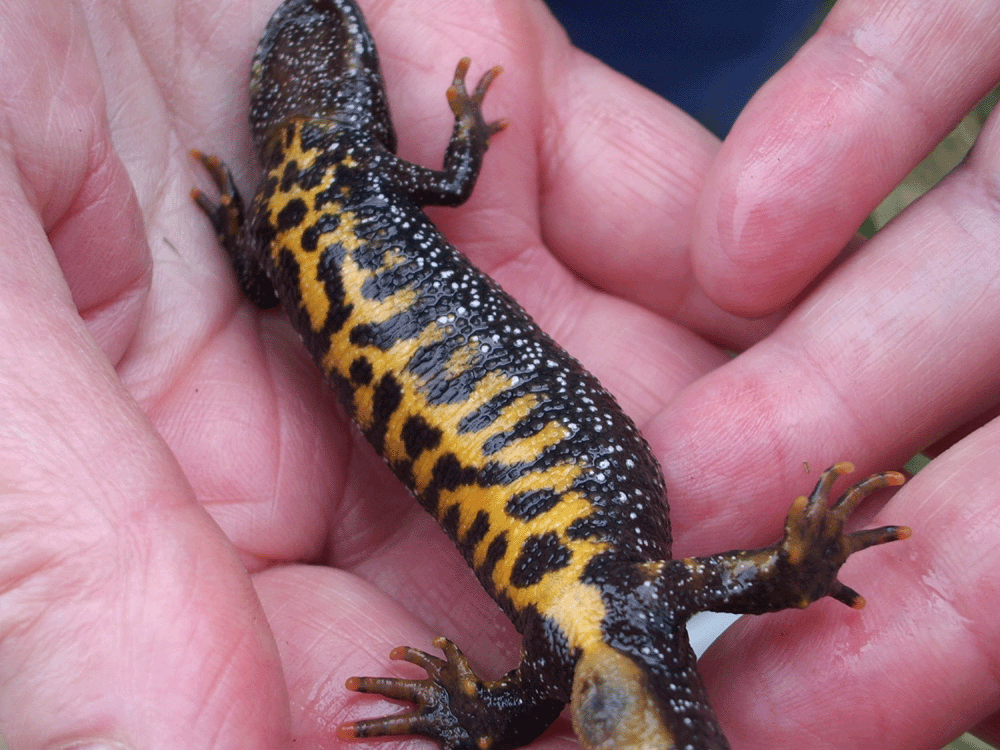A family of endangered newts have been discovered mysteriously nesting among broadband cables in a completely sealed manhole.
Great crested newts are an extremely rare sight in Scotland – and have never been recorded in the Coldingham area of the Scottish Borders before.
But when engineer Steve Jones, 57, opened a manhole in the village to undertake work to upgrade broadband, he discovered a family of seven great crested newts.
Nine of the protected newts were found, living among the broadband cables – and with all entrances to the hole blocked or dry, there is no indication of how they got there.
Steve immediately recognised them as an endangered species which it is against the law to disturb.
He said: “A community of great crested newts was the last thing I expected to find. Some of them had climbed onto the cables inside the hole.

“I recognised them because I was interested in amphibians and reptiles when I was young. So I took a photo and sent it to a friend, who confirmed what they were.”
Steve also contacted an environmental consultant, as well as the Amphibian and Reptile Conservation Trust (ARC).
Steve explained: “It’s a new habitat in the area for great crested newts and the conservationists at ARC were really excited to hear they’re spreading to this area.”
After an environmental consultancy was called in, they found seven great crested newts before draining the manhole and discovering two more.
Eight other newts – of different species – were also found nesting in the manhole.
Steve went on: “We recovered two more great crested newts, but the real conundrum is what they were doing there in the first place.”
Peter Leach, an environmental specialist in reptiles and amphibians from North Berwick said: “This was really unusual – how these newts got into the manhole remains a complete mystery.
“The access points around the manhole are either dry or blocked, so we may never know how they ended up here.
“The species isn’t comment in Scotland and weren’t previously known to be present in this area. They need ponds for breeding and suitable habitat for feeding and hibernation.
“The most important thing was to find a safe new home for the newts. Working with ARC and the Scottish Borders Amphibian and Reptile Group who had recently carried out DNA testing of nearby water pools, we were able to find a suitable pond to relocate the newts.”

